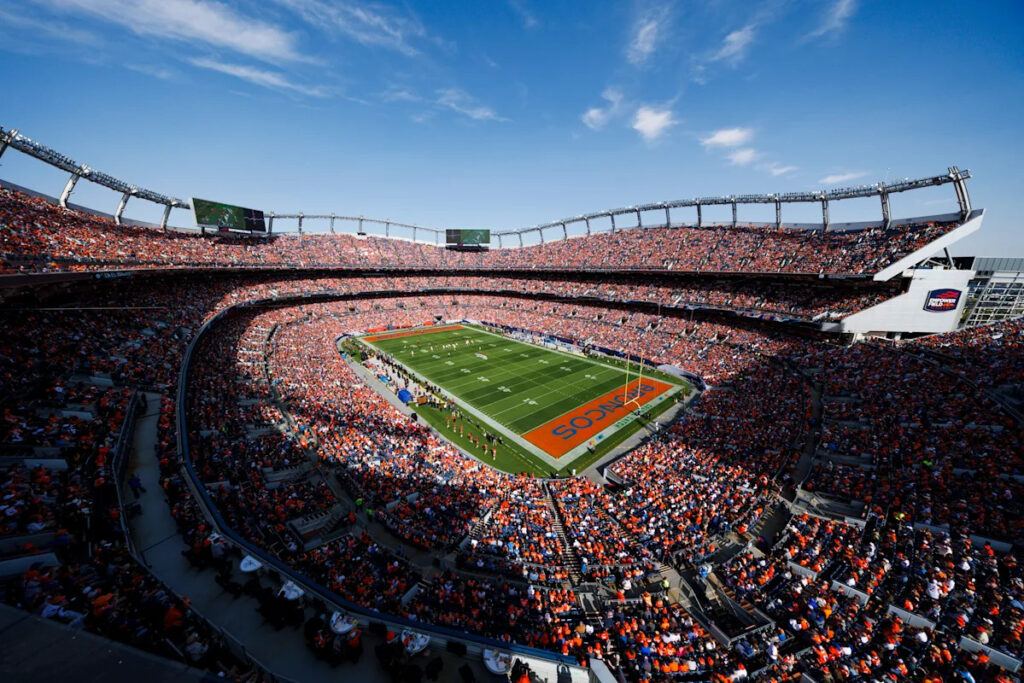The Denver Broncos announced Tuesday morning that a decision has been made on the site for a new privately funded stadium in historic Burnham Yard in Denver, with a targeted completion date for the 2031 NFL season.
In a joint letter from owners Greg Penner & Carrie Walton Penner, Denver Mayor Mike Johnston, and Colorado Governor Jared Polis, they stated that Burnham Yard represents a transformational opportunity. The Broncos have played at Empower Field at Mile High since 2001, the stadium that replaced old Mile High Stadium, where the team played from 1960 to 2000.
“Together, we are pleased to announce historic Burnham Yard in the heart of Denver as the preferred site for a world-class retractable roof stadium anchoring a dynamic mixed-use district,” Broncos ownership wrote. “One a vital railyard that played a key roe in Denver’s past, Burnham Yard now represents a transformational opportunity to reimagine the future with deep respect for the rich history of the area.”
Denver’s new stadium will include a retractable roof, which goes against the grain in contrast to what other cold-weather cities have done recently. The Chicago Bears announced plans on Monday for a new fixed-roof stadium in Arlington Heights, projected to open as soon as 2031. Buffalo and Cleveland are also moving indoors with their new stadiums. It’s a trend the Broncos are bucking with the retractable roof.
Advertisement
Like many of the new stadiums around the country, Denver’s will be mixed-use and include better transit options to help improve accessibility and connectivity. The mixed-use stadiums give cities the ability to hold events all year, as opposed to just eight Sundays during the football season and possible playoff games. The aim is to make these venues designated hubs that attract premier events, concerts, conventions, and of course, the Super Bowl.
Empower Field, the Broncos’ current home, is located less than 50 feet away from the old Mile High Stadium, but this new location plans to move the team about a mile further away. According to the Denver Post, the final price tag for this privately funded venture is expected to be at least $400 billion.
Read the full article here



